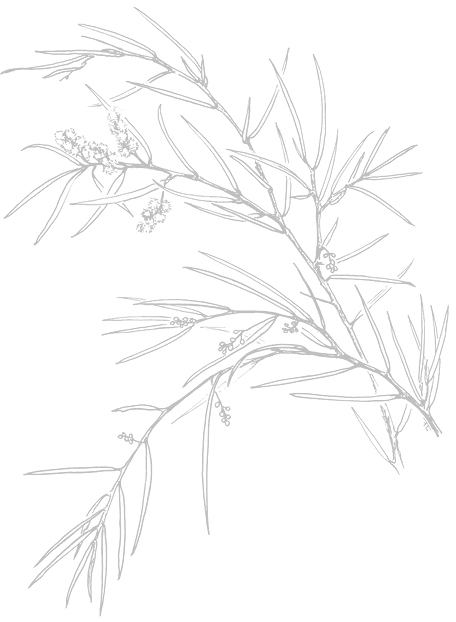
Scientific Name: Caladenia saggicola Endemic Having a natural distribution confined to a particular geographic region
Common Name: sagg spider-orchid
Family Classification (Clade): Monocots
Family: Orchidaceae
Threatened Species Status: Endangered
Permit: It is an offence to collect, disturb, damage or destroy this species unless under permit.
Form Description: Tall long-tailed spider orchid. Leaf narrowly lanceolate, base purple blotched, densely hairy. Scape wiry, densely hairy.
Height (m): 0.15 – 0.35
Flowers: Flowers 1-2 white to cream with very pale reddish lines and dark grey to blackish petal and sepal tips, labellum white to cream, sometimes the mid-lobe maroon, calli reddish-purple, column translucent with reddish markings.
Municipality
Plant Communities
Habitat Notes
Grows abundantly in association with Lomandra longifolia (sagg – namesake) in sparse woodland with old Eucalyptus viminalis, trees and scattered shrubs. This type of woodland has been greatly reduced since European settlement. Most abundant where ground is regularly disturbed and appears to overlap the area of greatest rabbit activity, while few or no plants are found elsewhere in the same habitat.
Site Tolerance
Dry, Exposed, Moist
Soil Tolerance
Loam, Sandy, Well-drained
Frost Tolerance
Moderate
General Notes
Tasmania’s only white long-tailed spider orchid.
Propagation Calendar
-
Flowering Month
Jan Feb Mar Apr May Jun Jul Aug Sep Oct Nov Dec -
Seed Collecting Month
Jan Feb Mar Apr May Jun Jul Aug Sep Oct Nov Dec -
Sowing Month
Jan Feb Mar Apr May Jun Jul Aug Sep Oct Nov Dec -
Cutting Month
Jan Feb Mar Apr May Jun Jul Aug Sep Oct Nov Dec
Propagation Method
Seed Information
Seed Treatment Notes
Orchid seeds are very minute yellow, brown or blackish dust-like particles. Orchid seeds are produced within a capsule that splits at maturity and releases thousands to millions of seeds. Dispersed by wind and water and only germinate following infection of the embryo by a suitable mycorrhizal fungus. Very few seeds become mature plants. For more information see Jones, Wapstra, Tonelli, Harris (1999): The Orchids of Tasmania.